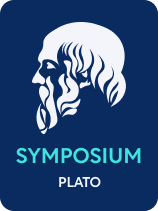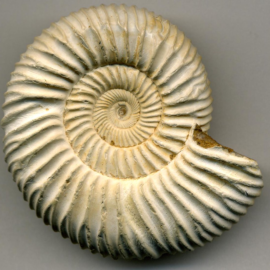

This article is an excerpt from the Shortform book guide to "Symposium" by Plato. Shortform has the world's best summaries and analyses of books you should be reading.
Like this article? Sign up for a free trial here .
What does Diotima say about love in Plato’s Symposium? How does her concept of love relate to beauty?
In Plato’s Symposium, Diotima’s speech centers on the human experience of love rather than its purpose or benefits. She concludes that the main object of love is not beauty. Rather, it’s goodness. However, she argues that beauty is integral to a good life and introduces the concept of the “ascent”—a process of learning to appreciate beauty in all its forms.
In this article, we’ll explore Diotima’s views on love by explaining what humans love, why humans love, and how humans should love.
What We Love
In Plato’s Symposium, Diotima explores love and how it relates to beauty. She suggests that, instead of beauty, the main object of human love is goodness. This is because goodness brings people happiness—a meaningful life well-lived. By definition, a good life is a happy life.
Furthermore, Diotima concludes that humans desire immortality: If people have good things, they desire to continue having them. Therefore, people want to permanently have good things. The longer someone lives, the longer they can have good things, so by desiring goodness people desire immortality.
(Shortform note: To understand what Plato means by happiness, it helps to consider the original Greek word: eudaimonia. Eudaimonia is usually translated to “happiness,” though it doesn’t entirely match our modern definition. While we usually think of happiness as a temporary positive emotion, eudaimonia refers to an overall state of living life excellently. The stabler, longer-lasting state of eudaimonia also explains why Diotima says people want permanent good—she’s saying people want to always live excellently, not that they want to always experience pure joy or bliss.)
Why We Love
Diotima suggests that the purpose of love is reproduction, either in a physical sense (creating a child) or a mental sense (creating virtue and wisdom). Creating physical or mental offspring is the closest a human can get to becoming immortal (and therefore permanently having good things). An individual’s offspring will live much longer than they do—physical children will carry on parts of their ancestors, and great works of art, ideas, or virtuous acts are often remembered long after the death of their creators.
Diotima emphasizes in particular the importance of mental children—a great work or great deed lives far longer than any physical child, and therefore brings its parent closer to immortality.
(Shortform note: It seems like Plato contradicts his other dialogues here by saying we reproduce because we desire immortality. In several of his other works (including the Meno and Phaedo), Plato argues that people have immortal souls (his idea of the soul is similar to the mind or the self) that are reborn into many different bodies. This raises the question: If our souls are immortal, then why is reproduction the closest we can get to immortality? Some scholars argue that this is an inconsistency where Plato temporarily appeals to a more pragmatic, skeptical viewpoint. Others suggest that in the Symposium, Plato talks about individual immortality—immortality of one person rather than of their soul (which over time inhabits many people).)
Love as Reproduction
According to Diotima, everyone is pregnant in some way—every individual has the potential to create physical or mental offspring. However, people can only give birth in the presence of beauty:
In a physical sense, beauty excites people to seek out suitable sexual partners and makes them happy and relaxed enough to engage in sex (or, later on, childbirth).
(Shortform note: You might wonder why Diotima suggests that males and females can become physically pregnant. Scholars suggest that Plato refers to ejaculation as the male form of pregnancy and childbirth: An aroused male is pregnant and gives birth upon ejaculating. This conception of male childbirth further cements the connection Plato’s trying to make between beauty and childbirth—beauty inspires sexual arousal which allows a male to “give birth” and ejaculate during intercourse.)
In a mental sense, a beautiful body or beautiful mind inspires new ideas. Particularly, Diotima suggests that a beloved with a beautiful mind and body can inspire a lover to birth excellent intellectual offspring. These intellectual children are speeches on virtue or wisdom that make up the educational component of a pederastic relationship.
(Shortform note: Plato seems to have two competing ideas on intellectual offspring in a pederastic relationship. He mentions one just above: A beautiful beloved inspires their lover to birth intellectual offspring. However, Plato’s Theaetetus suggests that Socrates acts as a “midwife of the soul”—just as a normal midwife helps deliver physical offspring, Socrates helps deliver mental offspring. This metaphor suggests that the lover (Socrates) actually inspires the beloved to birth intellectual offspring. Scholars suggest that this contradiction might result from Plato’s personality and ambiguous feelings on homosexual desire—the Symposium’s view seems to celebrate these desires, while the Theaetetus takes a more restrained approach.)
How We Should Love
Since people only give birth in the presence of beauty, it follows that beauty is crucial for a good life—even if it isn’t the main goal of love. Diotima then explains how to pursue beauty and birth offspring in a way that leads to the happiest life possible.
The Ascent
Diotima explains that the best way to pursue beauty requires a journey of self-realization that she calls the “ascent”: A process of learning to love beautiful things that are more and more good and meaningful.
- An ascendant’s natural desire for beauty inspires them to create intellectual offspring—in other words, it inspires them to develop their rational abilities and do philosophy.
- A long-term dedication to reasoning and thinking about beauty eventually allows the ascendant to understand what beauty itself actually is—and since all good things are beautiful, an understanding of beauty itself allows the ascendant to understand what goodness itself is.
- Diotima describes this understanding in terms of intellectual reproduction—in the presence of absolute beauty, the pupil can birth intellectual offspring that are absolutely and universally true.
Anyone who completes the ascent has a happy life (a meaningful life well-lived). By that point, they’ll have created intellectual offspring that are permanently and absolutely good—because these offspring reveal eternal truths about goodness itself. Creating eternal and good offspring gets a human as close as they can to immortality.
The Steps of the Ascent
Diotima outlines six steps of the ascent:
1) Love of one beautiful body: First, an ascendant is physically attracted to one beautiful body, inspiring them to create intellectual offspring.
2) Love of all beautiful bodies: The ascendant will eventually recognize that there’s no reason to desire one physically beautiful body more than another since they all share beautiful attributes in common. Therefore, the ascendant comes to love all beautiful bodies.
3) Love of all beautiful minds: As the ascendant continues to reason and birth mental offspring, the focus of their desire will shift from physical beauty to mental beauty—they’ll start to love wise and moral individuals regardless of their physical appearance.
4) Love of beautiful activities and institutions: Once the ascendant appreciates the beautiful minds of wise and moral people, they’ll come to appreciate the activities, laws, and systems in their society that create these beautiful minds.
5) Love of beautiful knowledge: The ascendant will realize what creates beautiful minds, activities, and institutions—knowledge. From there, they’ll love the beauty of human knowledge and will seek it out.
6) Love of beauty itself: By pursuing beautiful knowledge and birthing intellectual offspring, the ascendant expands the scope of their knowledge and reason until they can finally understand something of beauty itself. This abstract concept of beauty is perfect, eternal, and unchanging—all beautiful things take part in it, but they’re all flawed in comparison.

———End of Preview———
Like what you just read? Read the rest of the world's best book summary and analysis of Plato's "Symposium" at Shortform .
Here's what you'll find in our full Symposium summary :
- Plato’s philosophies on love, happiness, education, and reproduction
- Agathon’s description of Eros, the god of love
- What it means to love beauty itself






